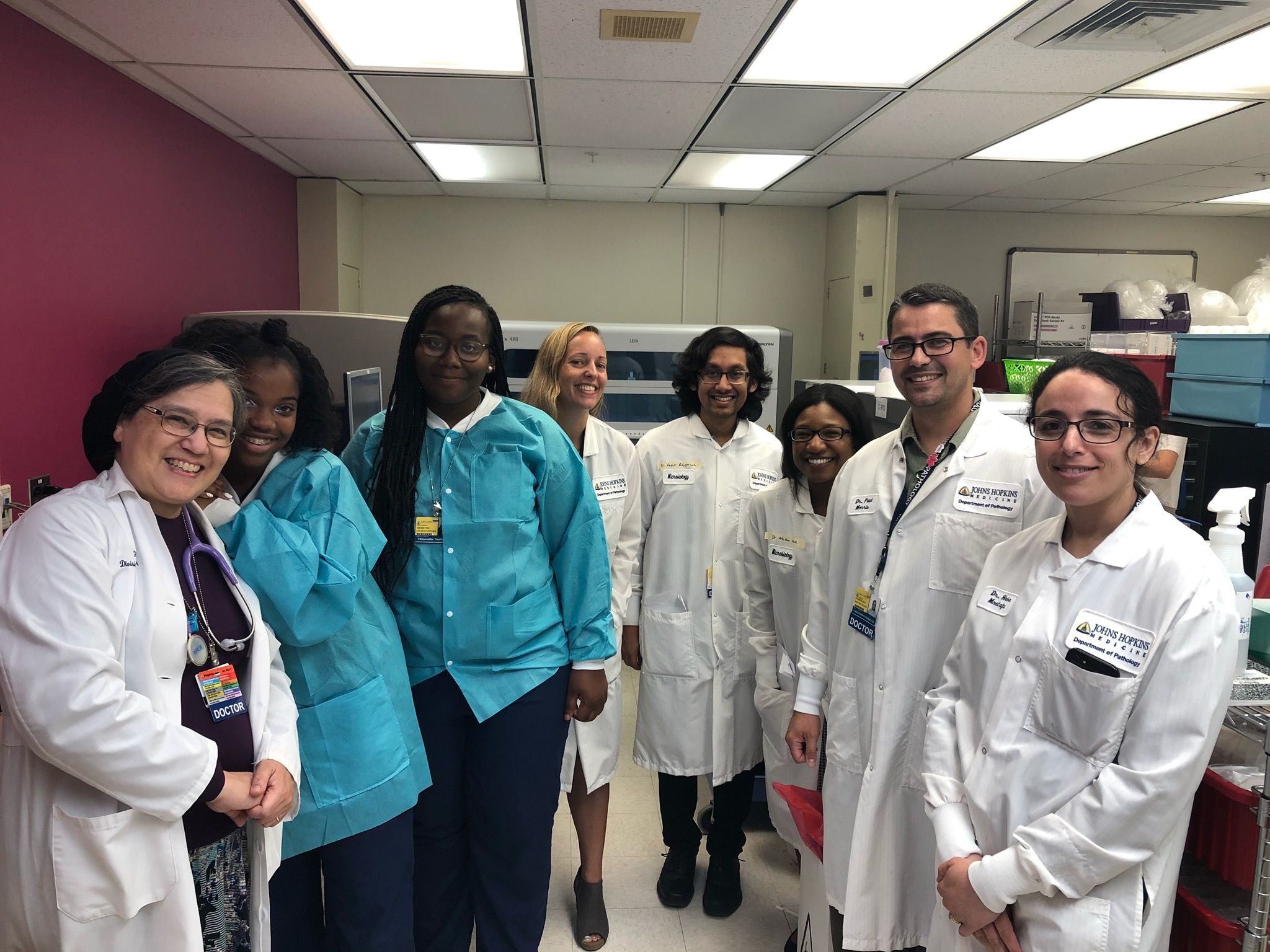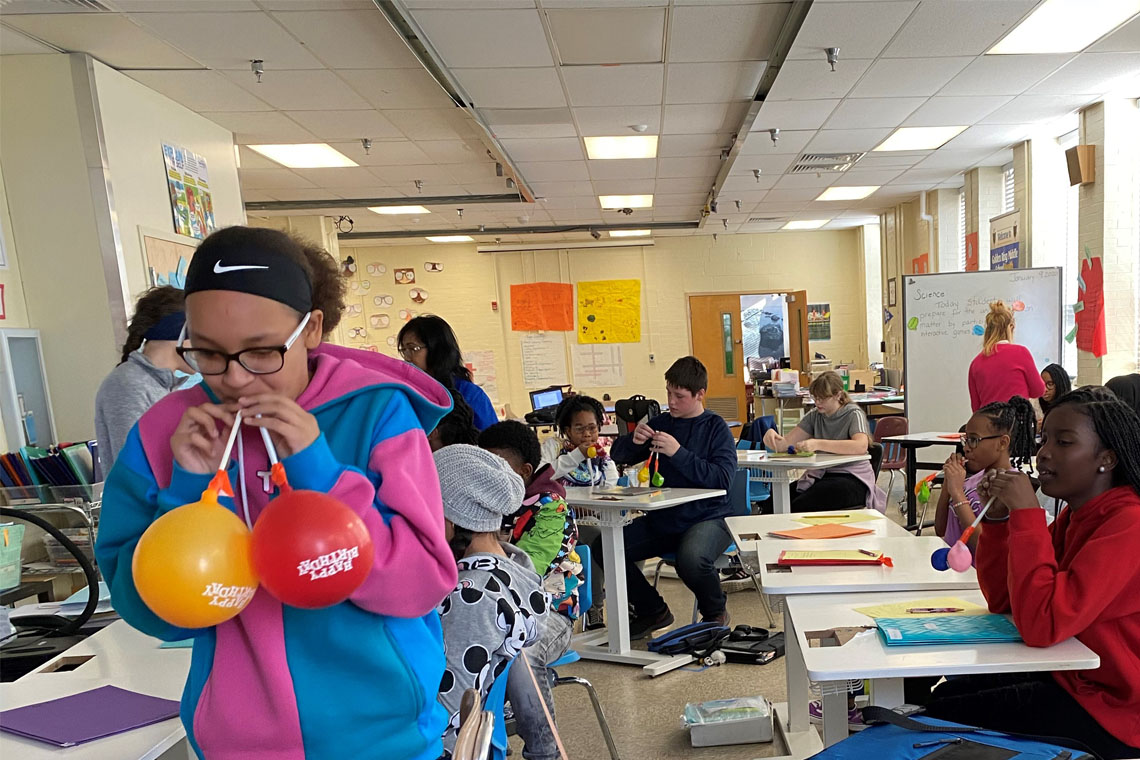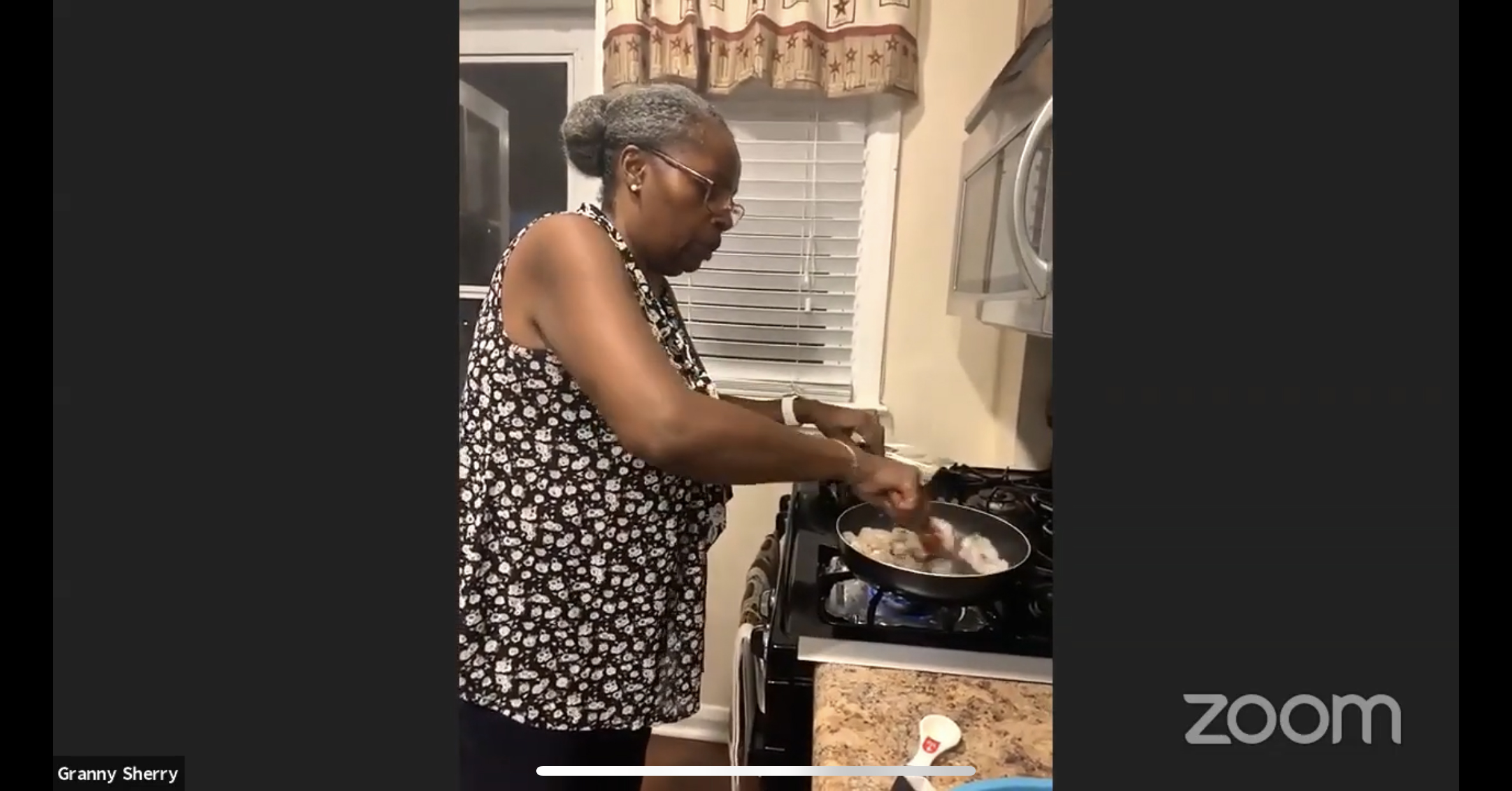Lilly Hoyt never thought she would go to college and pursue a career in health care. Through a Johns Hopkins Kimmel Cancer Center concierge internship, part of Cristo Rey Jesuit High School’s Corporate Internship Program, she learned she loves to work with patients directly and found the hope and confidence to follow her dreams.
“My internship helped me realize I wanted to be in the health field,” Hoyt says. “One of my patients told me I had a heart of gold, and that I should never settle for less than what I deserved. It was a very proud moment for me knowing that someone recognized my accomplishments.”
Cristo Rey Jesuit High School is an independent, coeducational, college preparatory school in Baltimore. All 350 students work one day every week of the school year at an area business or nonprofit as part of their studies.
Hoyt graduated in 2019 and now works at Mercy Medical Center as a nursing support technician. She completed a certified nursing assistant course in September 2019 and now plans to pursue a nursing degree.
“My internship at the Johns Hopkins Kimmel Cancer Center definitely prepared me for the real world,” Hoyt says. “They taught me about time management and accountability. I was looked at as a young adult rather than just a student and given a lot more responsibility that prepared me for my job.”
Johns Hopkins not only is a corporate partner of Cristo Rey’s but also awarded the school $10,000 through the Johns Hopkins Neighborhood Fund, money that supports the operating cost of the Corporate Internship Program, says Katie Sutton, Cristo Rey’s foundation relations and grants manager.
Corporate Internship Program Director John Busse says through their internships, paid for by business partners or individual sponsors, students earn a large percentage of their education cost while exploring career interests. They also develop necessary skills and gain confidence in professional spaces. Prior to their freshman year, all students attend a three-week summer program where they learn workplace etiquette.
“It gives the students insight into how the real world works,” Busse says. “They are developing confidence and learning how to be valuable voices on their teams. They learn both initiative and commitment.”
Before the COVID-19 pandemic, senior Michelle Dominguez-Cabrera interned at the Kimmel Cancer Center in the same position Hoyt held. She says she loved being able to help others and embraced taking on more responsibilities, such as helping to check in patients and orient them for their appointments.
“Sometimes it was very busy and I got nervous, but I’ve learned to have confidence in myself,” Dominguez-Cabrera says. “My internship has helped me develop professional skills like public speaking and multitasking. I also love that my internship gets me more involved in my community.”
Kelli McCarty, Kimmel Cancer Center outpatient supervisor, mentored Hoyt and Dominguez-Cabrera.
“Before COVID-19, the interns worked with patients every day in the welcome center,” McCarty explained. “It enabled them to get experience and make a decision about what they want to do. We encourage them to be part of the team and include them in decision-making processes.”
Yariela Kerr-Donovan, senior director of strategic workforce development in Johns Hopkins Medicine’s Department of Human Resources, helps place the interns in a variety of roles and supervises four of them virtually.
“Students connect with professionals, get exposure to being in meetings and see how Johns Hopkins runs,” she says. “It’s always refreshing to see how students bring innovation, ingenuity and creativity to their roles. I’ve seen their confidence grow, and Johns Hopkins is proud to have had a small part in shaping their future choices.”



